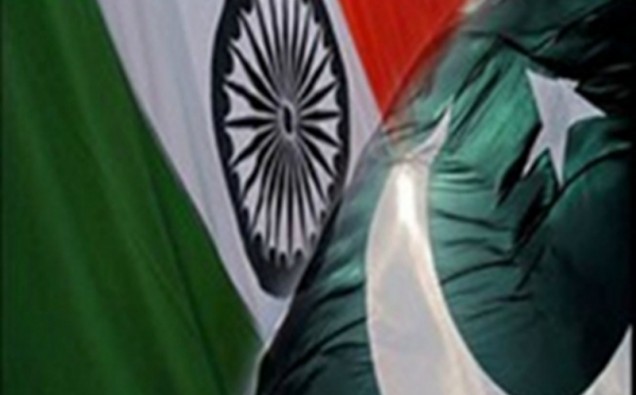
Pakistan’s cricket team has reached India amidst threats hurled by some Indian extremist groups and opposition from political parties in the backdrop of Pathankot airbase blamed on Pakistan-based militants.
The renewed tensions between the two nuclear powers since early January attack has seen both countries cooperation and recently Pakistani intelligence helped India eliminate a terror threat.
The question facing the two nations is clear. Will Calcutta contest help the two cricket giants wriggle out of the political shackles, and normalize bilateral matches? If not, hundreds of millions of cricket followers in South Asia and the world will be deprived of the sporting spirit and high quality cricket that Pakistan-India matches generate.
The reaction to Pakistani team playing in India has been unusually broad. The most alarming aspect of the opposition to Pakistan team playing in India has been the secular parties like All India National Congress and Aam Admi Party’s jumping onto the bandwagon of the forces that do not want Pakistan’s participation in the T-20 World Cup. The opposition to Pakistani team’s participation has been ratcheting up since the attacks on Pathankot airbase, traced back to non-state actors from the Pakistani soil.
On the one hand, extremist parties like Shiv Sena had started opposing Pakistan-India encounter in Dharamsala, the hill resort town in Northern Indian state of Himachal Pradesh, months before the beginning of the tournament.
But the opposition got an unusual turn when the Chief Minister of the state refused to ensure security cover to the Pakistani team, saying that he wouldn’t be able to stop protests from the ex-army men.
In an act of point scoring against the ruling right-wing Bharatiya Janata Party, the so-called secular political parties like Congress and AAP also joined the opponents camp. In this scenario, the Chief Minister of West Mamta Banerji’s assurance to Pakistan Cricket Board regarding security during their stay in Calcutta helped avert crisis that could have led to pullout of a major team from the tournament.
The Pakistan team, presently Calcutta, has to play the matches while facing all threats and home crowd pressure. This is not first time that Pakistan-India cricket relations have experienced a make or break situation. During much of their history since independence in 1947, cricketing relations have been hostage to estranged relations of the two countries.
Cricket ties between the South Asian nations began with the tour of Pakistan’s maiden tour in 1952. India reciprocated after a lapse of 9 years. Pakistan and India could not play any bilateral series for 13 consecutive years due to two major wars fought between two countries in 1965 and 1971. Cricket relations resumed in 1978 when Indian team under the captaincy of Bishan Singh Bedi visited Pakistan. Pakistan made a return visit in 1979.
The relations between the cricketing nations experienced another setback in 1984 when Indian team cancelled Pakistan’s visit after the assassination of Prime Minister Indira Gandhi at the hands of her security guards on 31st October of that year.
During the 1980s, a strong Pakistani and Indian diaspora populations in United Arab Emirates, Sharja Cup helped Pakistani and Indian teams to have bilateral matches at neutral venues. However exciting, these contests could not be a substitute for the thrill, the people of subcontinent could experience while watching matches in bustling cities like Lahore and Calcutta.
The goodwill visit of Indian Prime Minister Atal Behari Vajpayee to Lahore provided another opportunity to revive South Asian cricket. In 1999 Pakistani team visited India before the Kargil crisis. The limited war again led to the severing of cricket relations that could be restored only in 2003 when Team India visited Pakistan. But this honeymoon could not last more than 5 years as 2008 Mumbai attacks engulfed the sporting spirit.
In Pakistan, cricket experienced a lethal blow on March 3 2009 when Sri Lankan team came under terrorist attack in Pakistan’s eastern city of Lahore. This incident led to isolation of Pakistan in international cricket. Since then, barring visits by Zimbabwe and Kenya, not a single team of any major cricketing nation has visited Pakistan.
Due to this incident, all the world cup 2011 matches that scheduled to be held in Pakistani cities, were shifted to Bangladesh , Sri Lanka and India. Then Prime Minister, Syed Yousaf Raza Gillani witnessed the semi finals between India and Pakistan in Indian Punjab town of Mohali but the visit could not lead to the level of confidence building that could push resumption of Indo-Pak cricket relations.
Indian Prime Minister, Narendra Modi’s December 25 visit to Lahore also led to somewhat lowering of temperature on the international borders and Line of Control. Indian stance further hardened after Pathankot attack that has further shrunk chances of revival of bilateral cricket.
Over the last five years, Pakistan and India have face-off opportunities in a number of international tournaments including recently held T-20 Asia Cup and ongoing World Cup in India.














